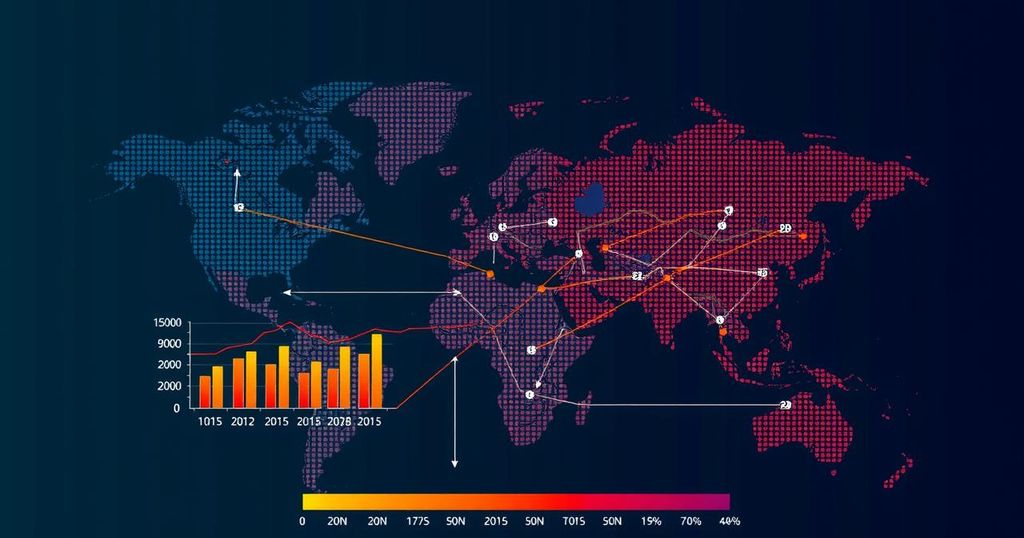The January 2025 inauguration of Trump is set to amplify global economic uncertainty. Key topics include anticipated tariff increases, implications for labor supply through immigration policy, potential rollbacks in renewable energy support, and the effects on inflation and interest rates. Experts predict significant volatility alongside potential opportunities in the global economy as Trump’s administration takes shape.
The impending second term of US President Donald Trump, commencing in January 2025, introduces heightened uncertainty into an already unpredictable economic landscape. This was the primary focus of discussions at the recent London Business School’s Think Ahead event, where experts examined the potential ramifications of Trump’s policies on both the US and global economies. Of particular concern are anticipated tariff increases, which Trump has indicated could reach as high as 20% on imports broadly and even more significant rates on specific countries like China and Mexico.
Such tariffs could drastically impact global GDP growth, potentially reducing it by 0.8 percentage points according to the latest International Monetary Fund forecasts. Observations from Trump’s first administration suggest that initial tariff proclamations often serve as a prelude to negotiations; retaliation from affected nations, particularly China, is expected. This uncertainty regarding the extent of tit-for-tat tariff responses further complicates the global economic outlook.
Other critical areas of concern include immigration policy, which could influence labor supply if Trump proceeds with plans to deport undocumented migrants. With the Republican Party controlling both houses of Congress, discussions surrounding renewable energy could experience significant shifts, especially in light of possible rollbacks of the Biden administration’s supportive policies for green investments. The US currently leads in green investments and a decline in federal support could hamper innovation in sustainable technologies, affecting global environmental goals.
Discussions at the London Business School event also highlighted the implications of Trump’s economic policies on inflation and interest rates. The extension of tax cuts from Trump’s first term could exacerbate the budget deficit, potentially leading to boosted inflation rates. This scenario is likely to compel the Federal Reserve and other central banks to maintain higher interest rates longer than desired, as these institutions typically respond cautiously to fiscal policy changes.
Various other topics, including digital currencies and financial deregulation, were addressed, suggesting a broad range of economic reforms ahead. In conclusion, the panel underscored that 2025 is likely to be characterized by considerable volatility and uncertainty for the global economy, although potential opportunities may emerge as the new administration unfolds.
The article delves into the potential economic repercussions of Donald Trump’s return to the presidency in January 2025. It examines various policy areas that were discussed in a panel at the London Business School, emphasizing the expected implications for tariffs, immigration, renewable energy initiatives, inflation, interest rates, and broader economic stability. The insights provided stem from historical analysis during Trump’s first presidency, highlighting patterns that could recur in the upcoming term.
To summarize, the anticipated economic policies of President Trump during his second term are expected to generate significant uncertainty and volatility in the global economy. Tariff increases and immigration policies may drastically impact labor markets and trade dynamics. Furthermore, potential shifts in renewable energy support could hinder green innovation, while tax cuts and budget deficits might trigger inflationary pressures and influence central banks’ monetary policies. Stakeholders are advised to prepare for a complex economic landscape in 2025.
Original Source: www.forbes.com







